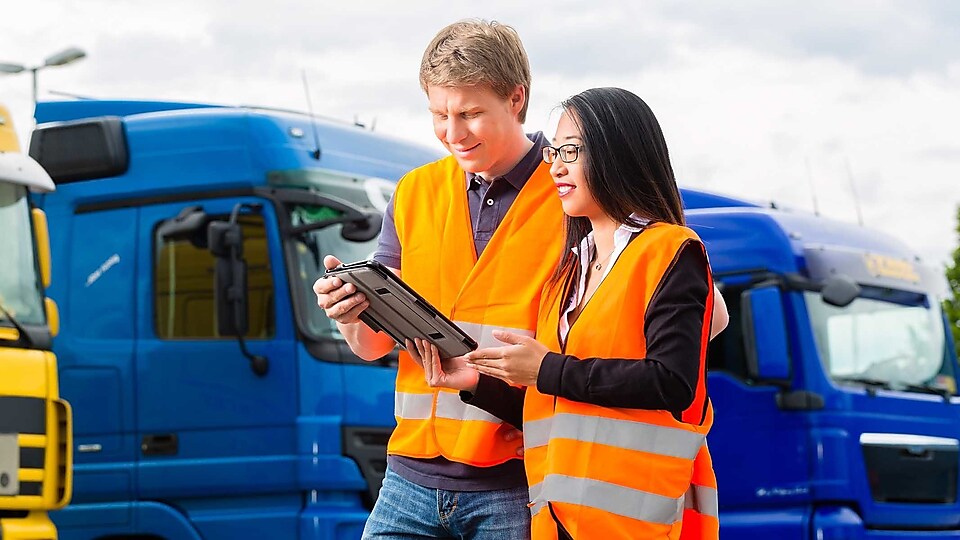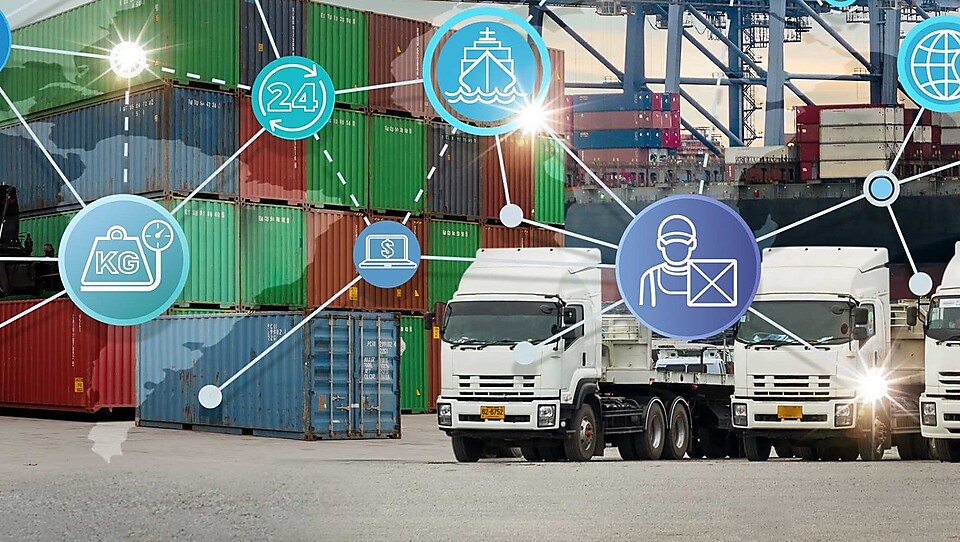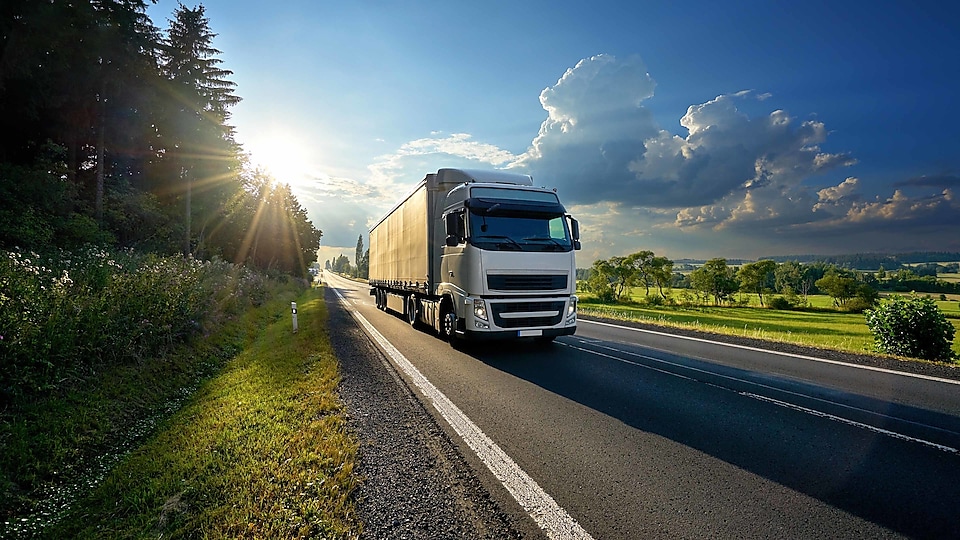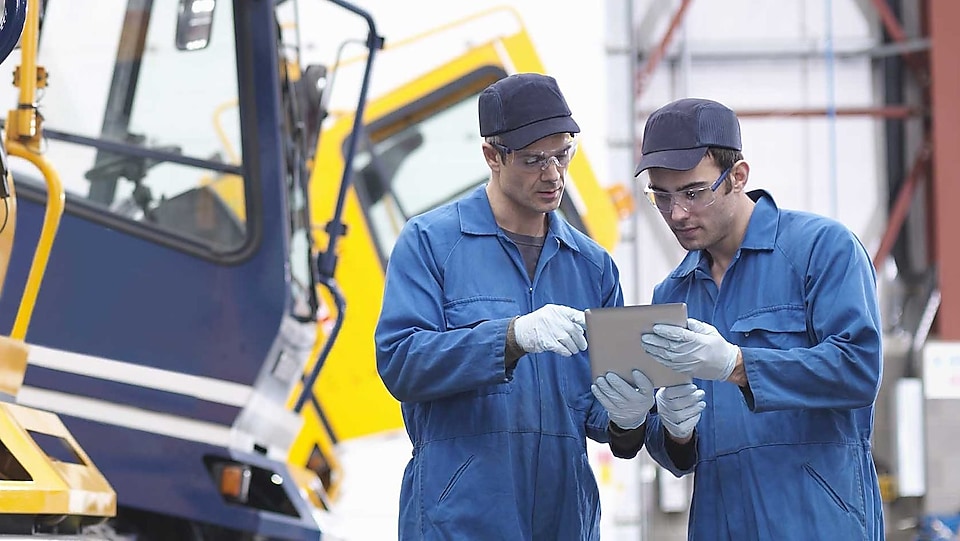
How to Stay Competitive in the Digital-Fleet Age
Technology is creating an ever-widening gap between fleets that embrace digitisation and those who do not. So, how can fleets best use emerging technologies to drive down fuel costs, reduce their total cost of ownership and lessen their carbon footprint?
By Shell Commercial Fuels in collaboration with Sandeep Kar, Chief Strategy Officer of Fleet Complete on Nov 21, 2019
"Digitisation is opening up whole new business models… These are based on the truck interacting with the world around it, becoming more efficient and in tune with its environment — for instance, using autonomous driving technology to improve fuel performance in stop-go urban conditions. Fleets that use these technologies, have the insights they need to generate more revenue."
Sandeep Kar
“Technology is really changing the way fleet managers approach their assets. In the past, it was about ‘what can I do with this truck?’ Now it’s ‘what can this truck do for me?’” This is the opinion of Sandeep Kar, Chief Strategy Officer of fleet-digitisation specialist Fleet Complete, as he explains the impact of digital technology on modern fleets.
Data-driven technology enables fleets to: react in real time to maximise returns on investment; realise efficiencies; cut their operating costs; and, last but not least, lower CO2 emissions. And with fuel accounting for 23% of these total fleet costs 1, finding ways to optimise fuel consumption – by unlocking its full potential – has been a big part of the drive to increase efficiency through data.
So, how can fleets best use emerging technologies to drive down fuel costs, reduce their total cost of ownership and lessen their carbon footprint?

Why data both helps and challenges fleets
The first step is identifying the issues at hand. When fleet managers were asked what their key challenge would be in the next three years, the most common response by far (52% of respondents) was how to increase operating efficiency 2. While a further 45% said that choosing the wrong fuel had contributed to unplanned down time.
As digitisation proceeds rapidly, it creates an ever-widening gap between digitally engaged fleets and those that have not embraced digitisation. While the former is able to dynamically match their vehicles to the nearest load, at the best price, so as to maximise the return on fuel investment; the latter cannot leverage these optimisation tools to cut fuel consumption and operating costs.
The same gap is also opening up in areas such as performance tracking, data-led driver training and overall cost control. Even if you run the most efficient fleet in today’s market, if you fail to respond to the potential efficiencies emerging as a result of digital advancements, your competitors are likely to overtake you by the time tomorrow arrives.
“Digitisation is opening up whole new business models,” explains Kar. “These are based on the truck interacting with the world around it, becoming more efficient and in tune with its environment — for instance, using autonomous driving technology to improve fuel performance in stop-go urban conditions. Fleets that use these technologies, have the insights they need to generate more revenue.”
An average truck is on the road without a load roughly 28% of the time.
How fleets can use data to cut fuel expenditure
Load-brokerage platforms
An average truck is on the road without a load roughly 28% of the time 3. Under manual freight-matching, this was inevitable. By closing the information gap between hauliers and customers however, load-brokerage platforms make it possible for fleets to achieve close to full utilisation of their assets. Uber Freight are one recent example of companies’ eagerness to transition into this area, with their reach set to expand to the European trucking market having seen the business model post more than $125 million in quarterly revenues in the United States 4.
This won’t just cut empty miles, either. By finding economically viable loads nearer to their route, using these platforms will reduce the number of miles travelled and help cut fuel costs.
Telematics
Data-driven technologies can also help improve driving styles, as shown by Shell’s telematics work with Turkish pharmaceutical company Sanofi, which oversaw a 27% reduction in accidents as well as a fuel saving of 4.4%, achieved in combination with Shell fuel with deposit control additives 5. Using data from their telematics systems, fleets can train drivers to eliminate practices such as harsh braking and driving at high revolutions per minute (rpm), which doesn’t just waste fuel but also puts increased wear on parts, particularly bearings.
The same fleet-management software can also help drivers practice intelligent journey planning: choosing the optimum route to cut distance, avoid congestion and meet delivery times. One recent UK government study cites research suggesting that this approach can cut fuel costs by up to 15.4% 6.
Data and predictive maintenance
Fleets can also use data — particularly data from connected sensors on the vehicle — to spot developing problems and fix them before they cause down time. According to one estimate, such predictive maintenance can cut unplanned downtime by up to 30% 7. And, of course, by maintaining your vehicles in peak operating condition, you also help to keep fuel consumption down and power output up.
Of course, maintenance does not happen in a vacuum. There’s little point in fine-tuning your fleet for efficiency and then filling it with base-quality fuel. Digitalisation can help companies maximise the value of choosing a premium fuel, by giving them the factual insight and knowledge where such products can make biggest efficiency improvements.
Using premium fuel with active deposit control additives, for example, helps clean up the engine 8 from carbon deposits and prevents further build-up (responsible for a 2% loss in efficiency and a 2.5% reduction in engine load-pulling power, when they accumulate on fuel injectors 9). This results in higher engine efficiency and lower fuel consumption.
Analysing ongoing data on vehicle usage – to match fuel to the vehicle type, its environment and specific demands– helps fleets deliver the best possible combination of efficiency, performance and reliability.

The right fuel partners for the fleet of tomorrow
To realise the maximum benefit from tomorrow’s digital technologies, fleets need to engage suitable energy experts. The right partner can help them gather the volume of data analytics and predictive technologies needed to spot relevant patterns, that fleet managers can then use to optimise for lower fuel consumption.
52% of businesses say they would benefit from help to understand future energy and vehicle technology options that may be suitable for their company 2. When you work with experts like Shell, the knowledge you gain can help reap optimal benefits from the technology and fuel you employ today. Furthermore, this can also help prepare your fleet for future technologies – such as over-the-air updates and autonomous vehicles – which promise a significant competitive edge to those who embrace and master them.
There’s little point in fine-tuning a fleet for efficiency and then filling it with base-quality fuel. Digitalisation can help companies maximise the value of choosing a premium fuel – for example, by increasing engine efficiency and reducing fuel consumption.
Make the most of your fleet data
With the right approach to data optimisation and combining with the right fuel choice – fleets can achieve significant cost efficiencies now and lay the groundwork for even greater benefits in the future.
“Increasingly,” says Sandeep Kar, “fleets are using digitisation to stay relevant and to future-proof their business. And to maximise revenue from digitisation, fleets often need some outside coaching. But it is worth it. We’ve seen early-stage companies using fleet brokerage and other digital technologies already supporting some extremely large multinationals.”
The initial challenge for fleet managers is perceiving the connected nature of digitisation and more tangible daily considerations and costs, such as fuel choice. Once the dots are joined between these factors, the data speaks for itself, and embracing digitisation no longer seems like a choice, but rather a necessity.

Footnotes
1. Global Fleet. (2019). Inside the pieces of the TCO pie. Available at
2. Turning Fuel into a Competitive Edge, Shell, 2018.
3. Davies, R. (2019). Digital freight matching will revolutionize the trucking industry—eventually. GetApp Lab. Available at
4. Busvine, Douglas (2019). Uber Freight launches in Germany, taking on local competition. UK.Reuters.com. Available at
5. Destination: Instant Insight, Shell Fleet Solutions.
6. How fleets can use driver behaviour and vehicle efficiency, UK Department of Transport, February 2018.
7. Park, J. (2019). How Data Is Changing Predictive Maintenance. Truckinginfo.com. Available at
8. Key fuel system components such as fuel injectors.
9. Fuel-Injector Fouling Causes Loss in Efficiency And Load-Pulling Power Paper, 2017, Shell.





